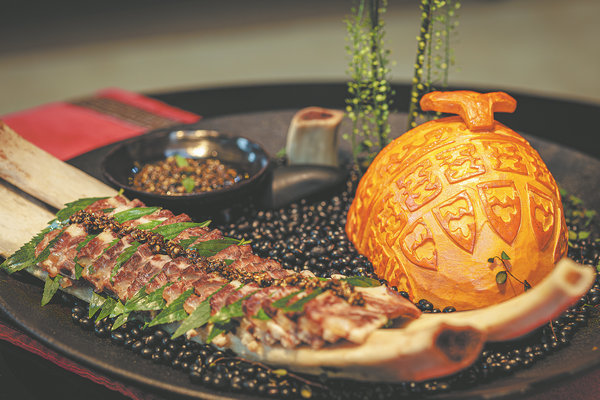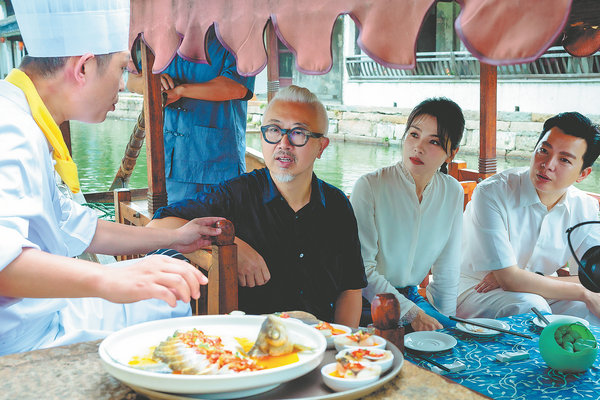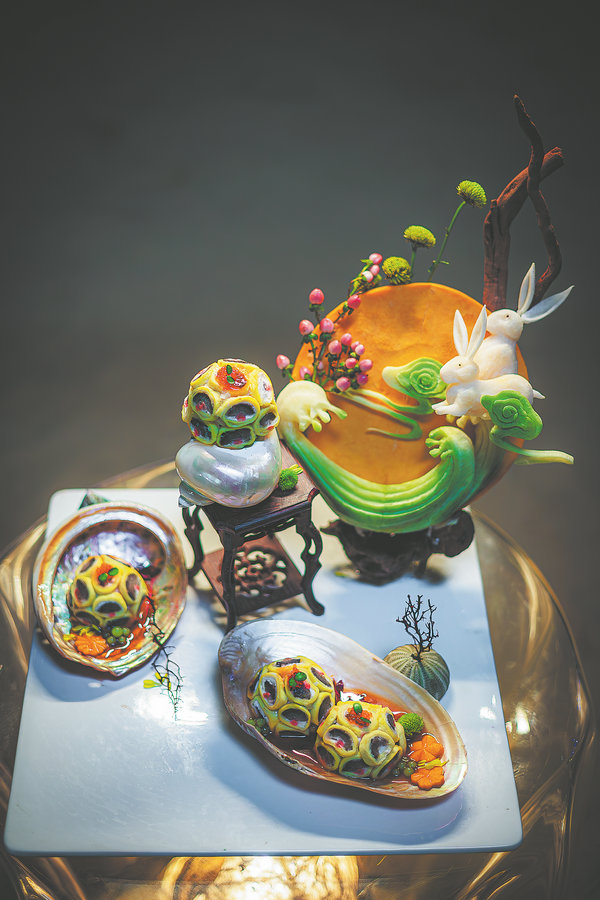
The Taste of History is a Good Recipe
Around 1,500 years ago, the renowned agronomist Jia Sixie wrote his masterpiece Qimin Yaoshu (Essential Techniques for the Welfare of the People), the earliest existing comprehensive agricultural text in China.
Within this monumental work that systematically documents agricultural production, there is an account of a dish known as Jinji Yukuai (fish slices coated with golden-colored "seasoning powders"). The delectable treat garnered acclaim from poets throughout history, including Li Bai during the Tang Dynasty (618-907) and Su Shi during the Song Dynasty (960-1279).
In A Taste of History, a variety show produced by the China Media Group, the famous delicacy was re-created, propelling it to online popularity.
For its second season, the show, which has been airing on China Central Television's website and CCTV-3 since early August, traveled to nine provinces, such as Hubei, Shandong and Sichuan, as well as Inner Mongolia and Xinjiang Uygur autonomous regions.

TV veteran Ren Luyu, anchor Ma Fanshu, artist Ouyang Yingji, and journalist Wang Bingbing have served as hosts, and were accompanied by different celebrity guests for each episode, as they embarked on mouthwatering culinary trips that also shed light on the cultural influence of delicacies, as well as how societal progress and technological improvement has influenced Chinese people's dining table.
Former host Ni Ping and actress Liu Tao were invited in the first episode as guests to join the team to visit Wujiang district in Suzhou, a city in Jiangsu province known for its plentiful natural resources, particularly its fish.

From selecting the most experienced chef to searching for ingredients in a local market, the celebrities managed to re-create Jinji Yukuai, which requires seven ingredients, including oranges and chestnuts, to make the dipping sauce, which is poured over thinly sliced fillets of bass.
An interesting anecdote about Suzhou bass was recounted during a visit to a memorial hall to Zhang Han, a Western Jin Dynasty (265-316) official, famous for quitting his government job in the then capital of Luoyang, Henan province, because he missed the bass dishes of his hometown.
Wang Xuanyi, the show's chief director, says that the crew previously worked on National Treasure, a popular cultural TV show about the most valuable items in collections of some of China's top museums.
"We want modern audiences to discover the depth of Chinese food culture. A delicious dish is not just a source of pleasure for literati and a delight for the taste buds, it also carries a nostalgia and deep affection for the hometowns," says Wang.
"We have all been focused on producing programs rooted in Chinese culture for many years, and the experience inspired us to dig out fresh perspectives, while we were brainstorming for A Taste of History," Wang adds.
Mentioning the famous quote, "to the people, food is heaven", by Western Han Dynasty (206 BC-AD 24) historian Sima Qian, Wang says that she and her fellow creators are curious about the main dishes enjoyed during different dynasties, and how distinctive methods of preparing food have shaped the way of life.
